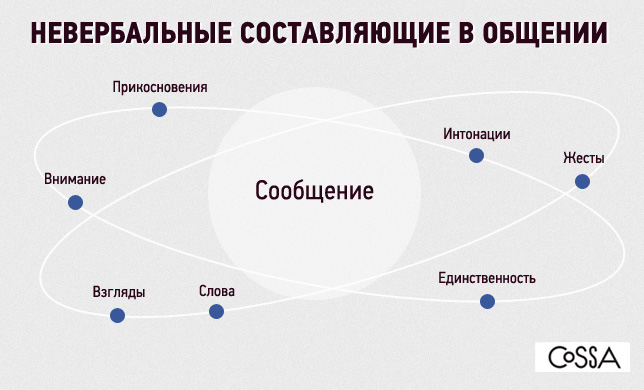Communication through social networks. How to communicate on social networks, rules of communication. Offline and online status
Insurance companies are warning that the number of crimes committed using data from social networks is steadily increasing. Posting personal information publicly increases the risk of becoming a victim of scammers. In addition, it may even cause you to lose your job or tarnish your reputation.
Telling the first strangers you meet about yourself everything that comes into your head is not the best idea, nevertheless, millions of people around the world do this through the social networks VKontakte, Odnoklassniki, Facebook, LinkedIn, Twitter and so on. At the same time, most of us are still not aware of the consequences of their careless behavior on the Internet.
This applies to most areas of life, be it daily household chores, machine production, traveling to clients or communication. Email written so quickly, but you had to calculate much earlier for writing on a typewriter significantly longer. Many of us even have a hands-free kit and can make important phone calls while driving. We keep in touch with colleagues and friends through social networks.
Social media is a blessing when used correctly
Given this future, Schiller and his contemporaries were likely talking not only about a great simplification, but also about a heavenly state that calls the possibilities of multimedia communication and the acquisition of knowledge a blessing. And that's what they say: blessing! How much faster will it be to invite you to your next meeting with field staff? We can send music and video files, provide our friends from Australia with photographs of this wonderful holiday. Everything has become easier and faster, also through social networks.
For example, by indicating our location on our social network page, we ourselves give a “tip” to potential robbers. An attacker can easily calculate your daily routine and “accidentally” find himself in the right place.
So, in New Hampshire there was a robbery case that brought the victim losses of 200 thousand dollars. The reason for the robbery was a careless post by a man in which he himself said when he was going to go on vacation. It’s good that the poor guy didn’t think of telling the whole world that he left the keys to the apartment under the rug...
Social networks rank number one among time killers
How many people complain about having less and less time, or even feeling "constantly being chased"? As much as the many opportunities for constant and rapid communication are a blessing, they are also a curse. 
Think about your own online activities and you might be told that there are only a few minutes of rest each day that you spend online and in in social networks. Presence is everything!
There is also a risk of becoming a victim of persecution or violence. Therefore, in order to own safety, you should only plan personal meetings with virtual friends in crowded places. By sharing frank stories about our experiences and personal lives on social networks, we ourselves make it easier for those who want to gain our trust and arouse sympathy.
Social networks sometimes prefer face-to-face conversations
You are sitting alone at the computer. When you play on your smartphone, are you alone or in best case scenario have any virtual opponents.
Social media cannot replace real-life experience
Other people are brought to the table - practically! No matter what decision we make, we pay a price for it.Social media can lead to online addiction
And what today can be so stimulating, so interesting, so tingling through social media may ultimately lead to loneliness, but then it is no longer self-chosen. It's almost superficial and perhaps one thing we're losing through social media is the ability to establish true intimacy with select people. Is there something bothering you? Haven't you had a good conversation with your partner for some time? Haven't you been thinking about realizing your dream of your own book for a long time?

If you don’t want to become a victim of scammers, keep your mouth shut. Being candid in public can make you a victim of cyberstalking, bullying, and bullying. And placed in open access a photo can destroy a reputation, career, and even lead to litigation.
Is your one and only physical exercise when moving your fingers across the keyboard while surfing social networks? Are you almost passing because you don't have an appointment again? Let's just see if we have the right priorities. Social media creates many forms of abuse and misinformation. Millions of shares are no longer checked for truth. A newly established research network explores how these digital discourses can change society.
Constance Marx in a conversation between Corso and Tanya Rune. Tanya Runov: “If you understand”, Cosmo Pukex, who makes his own thoughts to stage reality on social networks. It's about less about fake news and campaigns and more about interpersonal issues. Is it a coincidence that the Internet has given rise to so many forms of digital abuse and defamation? At the same time, the network unleashes enormous power here.
All in all, main advice, which experts give regarding safe behavior on social networks - think carefully before writing anything on your page, because someone will certainly read it!
Let's look at the safety rules for communicating on social networks in more detail:
1. Don’t post on social media where you are at the moment.
It’s one thing to call your friends or family members and tell them that you’ll be late at work, at a party, at a bar, etc. today. It's quite another to tell several hundred people about it, many of whom you've never met in real life.
How to deal with negativity in the comments?
Once in the world, their verifiability no longer matters. How do such digital discourses take place? For example, on social networks. Yesterday, a kick-off meeting began at the University of Mannheim, where all participants were able to exchange experiences for the first time. Runov: Mrs. Marx, you are a professor of linguistics of the German language in Mannheim, for a long time does research, especially for online communication. What were big topics at this first meeting? What has occupied you and your colleagues the most?
And these are actually the central themes that are already very well outlined. In our first meeting we really focused on methods, because although we are served data from the network like on a silver platter, it is certainly not trivial to pick it up and then also prepare for research. We then call it annotation, which means archiving it so that it can be accessed by other researchers. And this is actually one of the most big problems ever collect data in large data corpuses.
2. Beware of publishing your personal information on the Internet
Posting details of your personal life on the Internet can lead to attackers knowing almost more about you than your immediate family. A potential criminal will collect information about you bit by bit, and for your safety, you should not make this task easy for him.
Subjective rating is often in the foreground
Of course, we started with this topic, but ultimately we used it as a starting point, as a hanger, and also for the relevance of research in this network. So this idea, you put a rumor out into the world, and ultimately it doesn't matter how fair it is, but that it finds people who believe it and shares it millions of times.
Does it really work in this campaign and also in your marriage research scam? Marks: First of all, this is post facto. How does this happen? At the end of the day, this is actually a very exciting and disturbing phenomenon because we care less about what is true and what is right or wrong and how we value something. Yes, it makes us funny or rather boring. I think it's really brought to the forefront because of social media and the rating function. Now, however, marriage fraud strategies are very different and very long strategies, so the criminals take a lot of time, it is not a short term business, so comparison is very difficult.

3. Don't spread information about other people
A thief who plans to rob one of your friends or relatives will be grateful to you for providing information about his potential victim. Are you going to party with your friends until the morning? Don’t tell the whole world when, where and with whom you are going. Better share your impressions and beautiful photos the next day.
Runov: Because they build identification over a long time? Marx: Not only do they create personality, but of course they express these relationships very clearly. So on the one hand they convey the image of a person who is kind, but at the same time you also convey to the other person that this is a person who is merciful.
Mutual reinforcement as a principle
The impression also comes from the fact that there are functions for it. Or the feature doesn't exist, but there are several stand options. But this position is not based on whether something is true or false. He says the Internet has more to do with community development than information sharing.
4. Don't report expensive purchases you make.
Who doesn’t like to show off expensive purchases and new things to their friends on a social network? Robbers are looking for potential victims who have money and expensive new gadgets. When you talk lightheartedly about expensive purchases, you give a signal to potential robbers that it would be a good idea to rummage through your apartment or car.
Is this an impression you share? So this is a very interesting observation. Because they often say that the network destroys a lot. But in principle, it is true that many networks are formed. Of course, then just because of the "echo chamber phenomenon" even the networks that then come out and maybe one opinion or the other simply don't allow it. But overall, I have the impression that it is very important to encourage each other, to satisfy human needs that cannot be satisfied in any other way.
Runo: Does the way we communicate online change our communication outside? For example, there was this manifesto of the Bavarian Teachers' Association, where, as it was said, there is mistreatment of the language of young people. Does this have anything to do with possibly more free communication online?
5. Don’t post on social media when you’re away from home.
Robbery is a risky business. It is much easier for criminals to break into someone else’s home when the owners are not at home: take what you want and leave quietly. Don't write about when you are going to leave home. Moreover, you should not talk about the fact that you are going to and leaving the house unattended.
Marx: There is no empirical evidence that language is threatening. If something is threatening, we can assume that those who use the language will be abused. The fact that Internet communication is to blame for this cannot be confirmed either. Previously it was a TV error. That there can't be such a big gap.
“The functions are usually very diverse”
And nowadays children are simply equipped with the means mass media, and their parents do not guide them. Runo: But at least there is this prejudice, communication on social networks is very superficial. A lot of people have very, very meaningful things to say. This is where poetry arises, resulting in very concise, very interesting statements. It is a form and it also has a very specific function. So it always depends on the function. And they are very diverse on social networks. How often do you see a hashtag on posters, for example?
6. Don't share information about your daily schedule.
The more burglars know about your daily activities, the easier it is for them to plan a break-in into your apartment or home. In addition, knowing about your usual movements, an attacker can lie in wait for you in a deserted place.
7. Do not write any information about children
Remember! Children's safety comes first! The less you write about children – yours and others’ – the better for them. Do not talk about their habits, hobbies, location, friends, class schedule, clubs they attend.
And, interestingly, he also switched to oral, a very interesting phenomenon. Well, this should obviously perform the function that we really need. And that this phenomenon is actually in an autonomous connection if one still wants to separate it so that - and this is controversial - it has passed and is used orally. So the hashtag at the end of the sentence, hashtag and then irony, it's a very interesting phenomenon. Marx: double meaning or expansion of meaning. But only the concept of a friend expanded a little, relaxed a little.
Short sentences come to the voter
At first many people mocked him because he spoke like a student primary school, always with these simple, very short sentences. It seemed a little stupid, it might have been a bot if it wasn't on TV. Neurolinguist Elizabeth Wehling recently argued that she is actually incredibly skilled because she leaves a lot to the voter. Runu: Next year, for the big election year, of course.
![]()
8. Meet new friends from the virtual world only in crowded places
Perhaps you have been corresponding with this “friend” for a long time, and it seems to you that you know your online friend very well. In fact, this is an illusion: on the Internet there is always a chance that the person you are talking to is not who he says he is.
Therefore, always choose public places for the first meeting. This will not only protect you from possible troubles, but will also reassure the person you are going to meet.
You said that online communication is diverse. Runov: Constance Marx was a professor of German linguistics in Mannheim, specializing in the Internet, linguistics and online communication. How do you study digital discourses and what happens? This was the theme of the conference that just ended in Mannheim. Thank you for the interview, Ms. Marks.
The statements of our interlocutors reflect their own views.
- 51% of companies see a need to spend more resources on social media.
- Every other company has its own social media teams.
- The most important purpose of communication is to increase your own awareness.
9. Don't share details that cyberbullies and trolls can use against you.
Don't share details about yourself or post photos on social media that someone could use to tease you. Online bullying can be just as painful as in real life, if not worse. After all, everything that happens on the Internet is recorded and stored here forever. And rumors and jokes spread like an avalanche. And the scale is worldwide!
10. Don't write anything that could harm your reputation.
Stupid joke, inappropriate comment, drunk photo, political controversy, stupid antics - thanks modern technologies and social networks, you now have more opportunities than ever to tarnish your own reputation. Even if your wife or boss doesn’t see the “wrong” post, it’s likely that there will be people willing to take advantage of your vulnerability.

11. Do not insult or slander your friends, family, acquaintances, colleagues, etc.
There was a precedent in the United States when a teacher won a $3 million lawsuit against a student because he wrote on a social network that the teacher was a pedophile. Even if in your case everything does not go that far, remember: you will have to answer for slander and spreading rumors, one way or another.
12. Don't use social media while drunk
“Truth is in wine,” the Romans used to say. There are few things that liberate and provoke unnecessary frankness like. And it’s better if your frankness is listened to one-on-one by one of your close friends, and not read by a hundred unfamiliar people.
1. Waiting
A person immediately receives a response to most of his actions in the real world. If you look a person in the eyes and ask a question, it is immediately clear whether he will answer or not. On a social network, it is unknown when there will be a response to any action taken.
2.Waiting time
For example, you never know when a response to a private message will be received, even if the user is online. Often a person himself is not aware of what he expects in response to his action - a like, a discussion or a repost?
3.Large room
A physical analogy can be drawn that all users are in big room, mind their own business and from time to time go to the center and shout something. In response, they may receive a pat on the shoulder or a response, or they may be completely ignored. Sometimes users may feel uncertain whether others noticed the shout or not.
All these empty statements, unclear expectations and delayed answers keep a person in a state of unfinished mini-gestalts and unreceived reactions. And you can complete them only if you return to the social network.
4. Ignorance
When a young man talks to a girl in a cafe, looks at her, he receives her messages containing a whole set of non-verbal parameters.


After communicating on a social network, there is often a feeling of unsaidness. Sort of unfinished mini-gestalts. The lack of expression of all thoughts and feelings. The feeling that someone is stealing your interlocutor’s attention. From all this, the full meaning of the message being conveyed is lost.
And everything seems to be said and understood, but the feeling of unsaid remains. And it remains not because there are unspoken words. This feeling arises due to the desire and inability to put non-verbal components into messages - facial expressions, emotions, personal presence, glance, smile or laughter.
5. Uncertainty
When communicating online, you can’t know for sure why people don’t respond to messages: because the girl went to make coffee so as not to fall asleep and stay up another half the night, or (oh, horror!) she’s communicating with someone else. It is unknown whether those songs, comments and likes that are left on her wall are just friendly signs, or whether the lyrics contain important meanings inaccessible to an outside observer.
People do not see the whole message, and the situation of uncertainty begins to give rise to interpretations of what is visible, usually false and far-fetched.
6.Mood coincidences. Willingness to communicate
In life, we often come across the fact that our interlocutor is not ready to receive our message - at the time of contacting him, he is busy with business or other thoughts.
Online, these situations are partially mitigated by the fact that you can postpone responding to a message until the mood or opportunity arises.
Realizing his mistakes, deciding in the evening that he will become better and study, Marcel with these thoughts, waking up in the morning, rushes into his mother’s arms. At this time, she, being in a different spiritual point, suddenly pushes him away. And Proust notes: how often we are not synchronized, do not coincide at points, we love when we are not loved.
-Merab Mamardashvili “Lectures on Proust.”
Marcel would have sent a letter instead of throwing himself into arms - apparently, his mother would have found the time and mood to respond to the message properly.
True, the message would not convey all the feelings of little Marcel.
7.Offline and online status
One of my friends met a young man. They had an active correspondence for two days. On the third day, I receive a message from her during the day: “He sits online and doesn’t write.” And the girl begins to worry in vain: “He doesn’t think about me, he doesn’t write to me, because I’m no longer interesting to him.”
This is a common example of online state being misunderstood. IN modern world the online state means only one thing - the person’s computer is turned on. Whether he is behind it, what he is doing and whether he is ready to communicate - all this state does not show online.
Social circles
Anton Nosik once noted that people do not tend to divide those around them into circles, as is suggested to the user on Google+. If you look at what boundaries a person observes on a social network, it turns out that there are only three types of connections:
- me and the other
- Me and my friends
- me and everyone else
Social network for two
For the first two groups, online communication functionality has been developed, and for the third group we only have personal messages.
One might imagine that in the future it will be possible to connect two identities into a local network with limited access. This assumption is based on an analogy in life - connections between two people are not limited to messages, there are also some common aspects that live in human consciousness and the material world.
Probably, such a service could be something similar to a common wall, to which only two participants would have access.
It can be assumed that social privacy would be actively used by couples in love - this is exactly the space when the third is a wheel.
Now on VKontakte, for example, messages from lovers on a common wall look, at least, strange - it’s like two kissing at a table at a business conference.
Read the first part of the series
